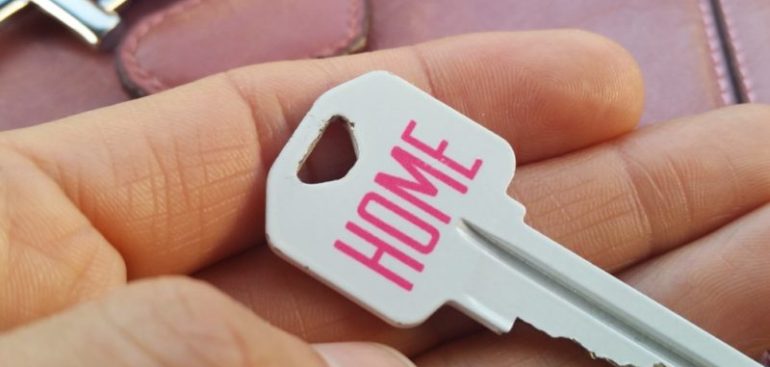During President Joe Biden’s campaign, he had made promises about bringing back incentives and credits to help first-time homebuyers. At a time when interest rates are at an all-time low, there may be some help coming through Congress for those wanting to buy their first home.
Rep Earl Blumenauer and Rep Jimmy Pancetta announced sponsorship of two bills. If passed they could result in as much as $25,000 in down payment assistance and a new first-time home buyer’s credit up to $15,000. Rep. Blumenauer stated that this legislation would help those who have been historically shut out of the housing market If passed these huge incentives this will open a chance to buy for so many people that have been waiting on the sidelines with hopes of buying a home.
Who Qualifies for the First-Time Homebuyer Tax Credit?
The first big question is who qualifies as a first-time home buyer and has eligibility for this tax credit. Eligibility will come down to income level, home price, and other factors. Qualification would be reserved for first-time homebuyers. They are considering people for the first-time home buyers’ tax credit anyone who has not owned a home in the last 3 years, a single parent or displaced homemaker who has only shared ownership with a spouse while married, or anyone who has owned a home that not permanently connected to a foundation. Also, someone who owned a home but lost it due to financial distress including foreclosure can qualify.
With the 1st Bill which is “The Down Payment Toward Equity Act of 2021” up to $20,000 can be provided to a homebuyer as assistance. $25,000 can be provided to eligible homebuyers if the buyer qualifies as socially or economically disadvantaged. For the average home buyer, this would take the average homebuyer 14 years to save this amount. So, this can provide substantial help.
To be eligible for this grant a homebuyer cannot make more than 120% of their median local income. The amount required to be paid back to the government will be dependent on how long you live in the home. If you are not living in the home within the 1st year, then you would have to pay back the debt in full. Each year after that the amount you would have to pay back would decrease by 20%. So, if you lived in the home for 5 years you would not have to pay back the amount at all.
How the Tax Credit Works
The 2nd bill is the “1st Time Home Buyers Act “this would provide a tax credit of up to 10% as a home’s purchase price or as much as $15,000 to first-time home buyers. To be eligible for this you cannot make more than 160% of your area’s median income. A tax credit directly reduces your actual tax bill. A lot of people confuse it with a deduction, which reduces taxable income.
Also, this credit will be considered refundable which means that if you owe less in taxes than the amount received you would receive the difference added to your annual refund. This would be like the first-time homebuyer credits approved by Congress during the great recession. A big difference from those tax credits is that this credit could be advanceable to be used at the time of purchase which would help homebuyers unable to save up much-needed down payments.
Studies show that the advanceable 15% tax credit could cover a standard 3.5% down payment for a 30-year mortgage with a low rate of 3% which is readily available from the banks would set up 9.3 million renters so they could purchase a home and have a monthly payment at 1/3rd of there income. A standard 3.5% down payment on a typical home sold was less than $15,000 in 40 out of the largest 50 US Metros. This is based on the median home value in their area in 2020. Alexandra Lee a Zillow economic analyst said, “Legislation that reduces barriers to homeownership could allow millions of renter households to finally enjoy the stability and wealth-building owning a home can provide.”
There have been initiatives in the past like this that have helped a collapsed housing market. In 2008 during the financial crisis, many home buyers who had bought their homes just before or during the housing market collapse found themselves upside down on their mortgages. This means that they owed more on the mortgage than the home was worth. Sometimes this difference was significant. This 2008 tax credit covered homes purchased between 2008 & July 2009 and allowed homebuyers to claim a credit up to 10% of the purchase price up to $7500. Approximately 1.5 million homeowners took advantage of this tax credit before it expiring in 2010.
At this point, there are already many other tax benefits to owning a home. This deduction can be taken if you decide to itemize on a Schedule A. Remember from earlier since the 2017 Tax Act almost doubling the standard deduction it may not be beneficial to itemize. But if you choose to itemize this deduction can apply to any mortgage insurance paid. This is a deduction, not a credit so this would be a reduction in the taxable income. This would obviously reduce the overall tax but unlike the credit, it is not a direct reduction of the tax debt.
This tax deduction applies to any mortgage insurance you paid from a conventional loan or one backed by a government agency like an FHA loan. You can also deduct the funding fee from a mortgage-backed from the Department of Veteran Affairs. You can also deduct mortgage interest on your federal tax return. If filing married filing jointly you can claim interest paid up to $1 million if the loan was originated before 2017. If originated after 2017, you can deduct the mortgage interest up to $750,000 for MFJ and $375,000 if filing single or separately.
Tax Credits Related to Energy Efficiency
Property tax and any state income tax are also deductible. You may deduct up to $10,000 of state and local taxes from your federal taxable income. There are also renewable energy tax credits. If you have made upgrades to your home that have improved their energy efficiency you may claim credit for 10% of the cost of the qualified energy efficiency improvement. As detailed on the IRS website, qualified energy efficiency improvements include the following products:
- Energy-efficient exterior windows, doors, and skylights
- Roofs (metal or asphalt) and roof products
- Insulation
Residential energy property expenditures include the following qualifying products:
- Energy efficient heating and air conditioning systems
- Water heaters (natural gas, propane, or oil)
- Biomass stoves
Other Programs That Could Benefit First-Time Homebuyers
Each state has its own versions of the first-time buyer programs as well. Many of these programs were created in the 1980s to encourage homeownership. New Jersey for example provides down payment assistance to first-time buyers. This program provides $10,000 towards a down payment and closing costs. New Hampshire offers a Mortgage tax credit which helps reduce taxable income. This can save you thousands yearly on federal taxes owed.
If the bill is passed this new credit could be available as early as next year. It still has a hard road to go to become law but if passed the legislation would make 10% of the nation’s renters about 4.37 million people eligible for down payment assistance. As quoted on Yahoo Finance Sunny Shaw, the president of the National Association of Housing and Redevelopment says, “The refundable tax credit proposed in the bill would increase homeownership among low- and moderate-income Americans, especially those from marginalized communities with historically low homeownership rates.”
The hope is that this assistance could help stimulate minority homeownership. There are still other hurdles that must be passed to enter homeownership and benefit from the tax credit. The two major qualifiers to obtain a mortgage to pay for the property after a down payment are income and credit. A lot of renters may not be positioned to qualify for the mortgage even if a down payment is provided.
Also, people can only benefit from the credit if there is affordable housing in their area. Currently, there is such competition and tight inventory that homes are selling at a historically quick pace and extremely high prices. If you can’t qualify for a mortgage or there aren’t homes available for sale in your price range, then these programs unfortunately are of no benefit to you. This may be the case for many aspiring homeowners.
In conclusion, this new tax credit if passed will provide many the ability to purchase a property and take advantage of the low-interest rates and the stability of homeownership. If you are one of these people who have always wanted to buy but found it impossible to set money aside for the expected down payment on a property, then definitely follow this through the law-making process. If approved make sure you reach out to a certified tax professional, either an enrolled agent or CPA to make sure to get all the benefits from these programs.




